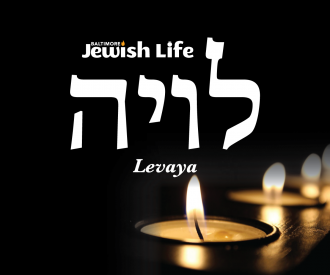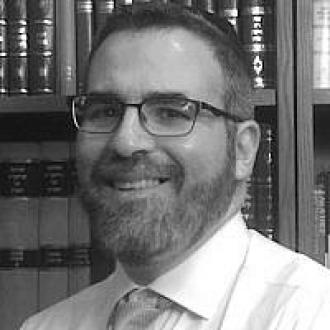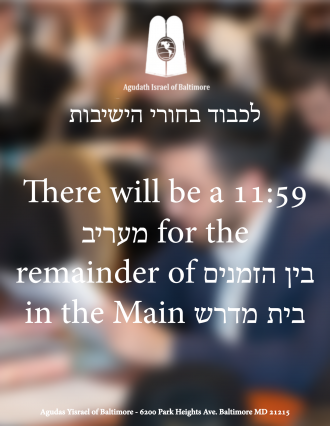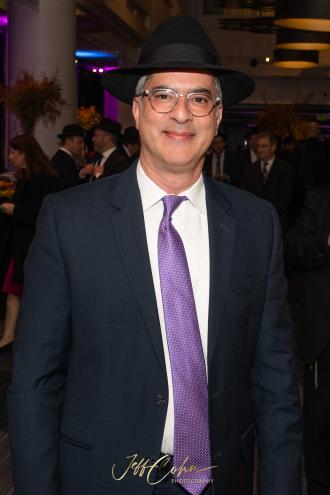Vezos Habracha, the final parsha of the Torah, consists of Moshe Rabbeinu's blessing of each individual tribe in our nation. One may wonder why he specifically chose to do so during these last critical moments before his passing. What was the message he was trying to convey to us by doing so?
After his lifelong mission of teaching the Torah, perhaps Moshe Rabbeinu was revealing to all future parents and teachers the method to ensure that they succeed in passing the Torah on to their respective generations: make it ABUNDANTLY clear to them that your guidance is the result of genuine love and concern for their well being. For if they do not feel this with certainty, they will never accept your guidance.
R' Kestenbaum, a Rebee in Yeshivas Waterberry, beautifully captures this point in his book "The Heart Of Parenting". He writes "In all of my years of interacting with boys struggling with their Judaism, I've found that their struggles were never due to strong temptations or having questions of belief. The real core issue that they all commonly felt deep down was a lack of love and care from their parents or teachers, whether in reality or due to their own personal misperception. The bottom line is that in my experience, no child who felt confident and strong, loved and cherished by all, rejected their Judaism".
Living Inspired
Moshe Rabbeinu understood that if he wanted his teachings to have an eternal impression, he had to demonstrate to the Jewish nation his tremendous love for them and genuine concern for their well being. For when one feels an abundance of genuine love from their leader, parent, or teacher, no challenge can stand in their way. They become empowered and will taste the sweetness of all that is right. On the other hand, if they feel that something is being forced upon them and that their mentor is teaching them a path that is not for their own personal well being but rather for external or social reasons, the opposite effect will ensue.
Additionally, Moshe was teaching us the proper way to discipline. Sefer Devarim is full of the harsh rebuke that Moshe directed at our nation. Although constructive, it was sharp and accusing. Moshe was demonstrating to all parents and teachers that by far the most CRITICAL rule when disciplining the Jewish nation is: making it ABUNDANTLY clear that it is coming from a place of love and genuine concern, and not from personal anger, frustration, etc. Otherwise, it may very well have the opposite effect. R' Kestenbaum writes that "especially when disciplining children and young adults, it is crucial to openly express that you are doing it because of your love for them. E.g: tell them "it pains me to punish you, but I must do this because I love and care for you". He points out that the genuine motive behind one's disciplinary actions are often crystal clear to even the youngest children. They can detect whether it is coming from personal anger, frustration, need for control, etc. or from a sincere love and desire for them to succeed. He adds that "no harm whatsoever can come about from showing 'too much' love and concern for your child. Children may become spoiled from an abundance of materialism but not from an abundance of warmth. On the other hand, if one fails to express his love thoroughly enough, the results may be detrimental".
May we all succeed in following Moshe's example and merit to share in his success; for even thousands of years later, every Jew still accepts his words as truth and refers to him with respect as Moshe Rabbeinu, Moshe our teacher.
















